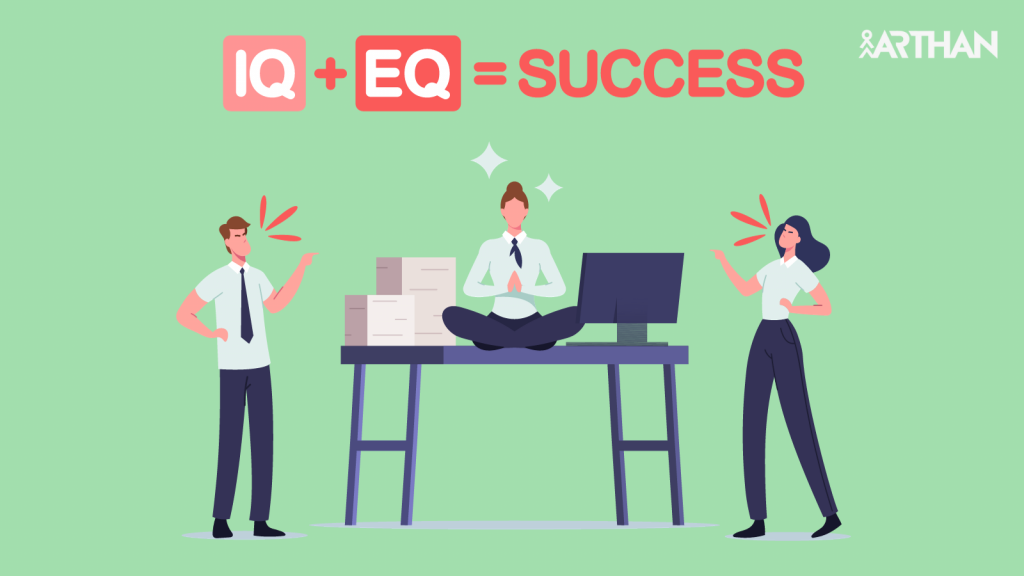What makes you a better leader? Emotional Quotient or Intelligence Quotient?
By – Nandita Krishnan

Leadership, in today’s world, is no longer limited to having a vast knowledge and being a thought leader only. It is also about how empathetic and respectful you are of your team’s emotional needs. While Intelligence Quotient is a measure of your ability to solve problems and think logically, Emotional Quotient is a measure of your ability to understand and manage emotions.
In the pre-COVID era, leadership was more about Intelligence Quotient; the post-COVID era sees Emotional Quotient as a critical element of leadership. However, it is not about choosing one of the two and more about balancing IQ and EQ. When it comes to a balanced leadership style, both EQ and IQ are essential.
As we know, it’s not the smartest people who are the most successful or the most fulfilled in life. You probably know people who have studied from the best colleges and are brilliant and yet are socially inept and unsuccessful at work or in their personal relationships. Intellectual ability or your intelligence quotient (IQ) isn’t enough on its own to achieve success in life. Yes, your IQ can help you get that promotion and reach the leadership position, but it’s your EQ that will help you manage the stress and emotions when dealing with difficult situations and people at the workplace. IQ and EQ exist in tandem and are most effective when they build on one another.
Having both qualities allow managers and leaders to think critically and solve problems quickly. In addition, EQ can help managers better understand their team members and how they are feeling. This enables them to develop constructive and supportive relationships with their team members. They can see the big picture and often have a balanced perspective on issues, making them better mentors, communicators, and team players.
Leaders with high EQs can build close relationships with their employees, which fosters trust and respect. This, in turn, leads to successful outcomes. EQ allows for better communication and collaboration to unlock hidden productivity, which leads to improved performance.
As balancing IQ and EQ becomes a crucial need for effective leadership and success in the workplace, here are some tips to help managers get the best of both IQ and EQ:
- Understand the importance of both: Recognize that IQ represents cognitive abilities, such as problem-solving and analytical skills, while EQ refers to emotional awareness, empathy, and relationship management. They are both valuable and necessary in a well-rounded manager.
- Be Aware: Cultivate self-awareness by regularly reflecting on your emotions, reactions, and thought processes. Understand how your emotions affect your decision-making and interactions with others.
- Cultivate Emotional Regulation: Develop the ability to manage emotions, especially during challenging situations. Emotional regulation prevents impulsive reactions and helps you handle stress effectively.
- Enhance your Communication Skills: Enhance your EQ by improving your communication skills. Express yourself clearly and empathetically, and encourage open and transparent communication within the team.
While both abilities are essential for managers, the intelligence quotient is the key to successful managerial performance and the emotional quotient is often seen as a critical ability for understanding and managing people, leading to even higher team performance. It is not a matter of choice, but about co-existence of both. And a great leader is one, who knows which quotient to apply in which situation.


